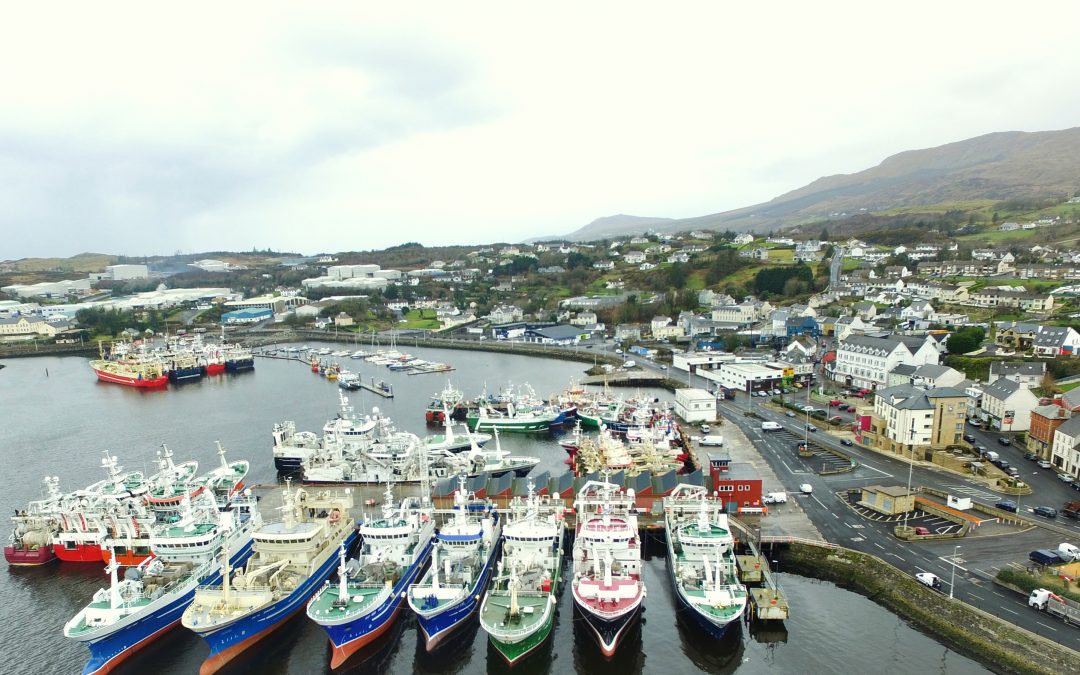The Killybegs Fisherman’s Organisation (KFO) and the Irish Fish Producers & Exporters Association (IFPEA) have both responded to calls by Donegal fishermen for the cancelling of the proposed landing of Mackerel by two Norwegian vessels in Killybegs tomorrow.
The two Norwegian vessels are currently on route to the Donegal port and are expected to land there catch to a local processor on arrival.
Irish Fishermen are concerned by Norway’s decision to unilaterally allocate itself a 55% increase in quota this year for a stock that is being mainly caught in international waters.
Lack of capacity at Norwegian processors and the decision by Iceland last week to refuse Norwegian landings has forced the Norwegian fleet to seek other outlets for their Mackerel catches. While their has been many landings into Killybegs previously by vessels from Norway, this has mainly been Blue Whiting caught off the west coast of Ireland and not Mackerel caught far north off the Norwegian coast.
Sean O’ Donoghue, CEO of the KFO told The Skipper
“The KFO with its European Pelagic fishing industry is calling for immediate EU action to stop Norway and Faroe Islands in their massive overfishing of the Northeast Atlantic mackerel stock. We reiterate our call of last May on the EU Commission and Council to act swiftly and decisively on this reckless and irresponsible behaviour by using the instruments at its disposal such as trade measures and the IUU regulation. The Norwegian mackerel landings into Killybegs are only adding and abetting this reckless and irresponsible behaviour by Norway which is not acceptable and KFO is very disappointed that this has been facilitated.”
“In May of this year first Norway and then Faroe Islands decided to unilaterally increase their share in the mackerel fishery by 55% each. Now the fleets of Norway and Faroe Islands, but also the fleets of Iceland, Russia and Greenland, are massively targeting mackerel with as many vessels as possible. To a large extent their fisheries also take place in international waters. If this reckless and irresponsible behaviour continues with these coastal states fully utilising their inflated, unjustified quota shares, the total mackerel catch will be 42% higher than the scientific advice that was agreed in November 2020 by all parties.”
“The EU cannot and should not let this form of extreme overfishing continue by these coastal states which is contrary to UN Convention on the Law of the Sea and particularly the 1995 Stradling Stocks Agreement. It is incredible that at the same time as acting in such an irresponsible manner they portray themselves to be sustainable and responsible nations. There is no way Norway can defend itself for taking almost 300,000 tons or 35% of the scientifically advised total mackerel quota of 852,000 tons. Norway happily continues to export huge amounts of their seafood, including farmed salmon, to the EU market as if this is business as usual. The EU must immediately start using its power as the world’s largest import market for seafood and take action to stop such reckless and irresponsible behaviour.”
CEO of IFPEA Brendan Byrne speaking to The Skipper today said:
“The IFPEA welcome the landing of fish from any vessel, from any country into Ireland, it is critically important for the fish fishing industry that we facilitate landings and in turn we are allowed to land into other countries. I recently addressed this very matter at a meeting with the SFPA along with all four PO’s namely the KFO. IFPO , ISWFPO and the ISEPO when they and I agreed the future need to have Ireland as a country that can attract vessels from other coastal states to land fish into our country.”
“The IFPEA will always be progressive in promoting the Irish Fish industry , and in that context the Norwegian vessels are especially welcome to Killybegs, it is particularly a welcome development after many years of Killybegs vessel owners doing business in Norway.”
“The reality of the Irish Fish processing industry is we are an immovable object – we depend on fish coming to us – so we must be mindful with the TCA/Brexit cuts – which are real and reoccurring over the next 5 years, additionally sourced fish will be needed in order that we remain capable of meeting existing processing capacity never mind additional growth in the years ahead . Ireland must reach out otherwise we will only further isolate ourselves”, concluded Brendan Byrne.


We catch the mackerel in Norwegian waters. Not international 😉
Boats from uk/ireland come too norway with herring now, should we stop them?
mackerel stocks are very low most places;;;, do not need large factory ships chasing them in spawning grounds, every one has to survive,this is hitting the small inshore fishermen all over,
UK demands extra mackerel quota from Norway as a result of Brexit. When Norway says that the balance must be as before Brexit, Mr. Dounahug describes Norway as reckless and irresponsible. Strange that the Irish fishermen, who now tak action against the Norwegian fishermen, not have understood what caust the situation.